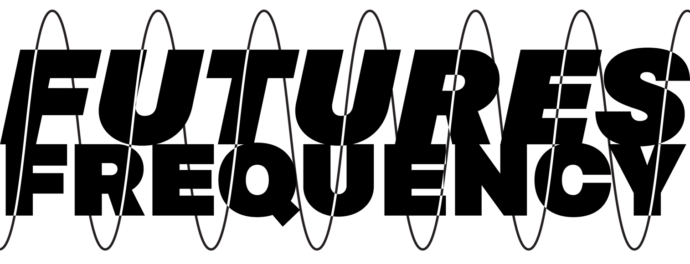My to-do-list this spring 2022: Enroll for Sitra’s Futures Frequency online workshop at Laurea. Check. Participate in Sitra’s Futures Frequency online workshop at Laurea. Check. Test the workshop right away with a group of Laurea students in the Multicultural and Multidisciplinary Professional Competences online course in March 2022. Check.
 Photo: Maruti Soni / Pexels
Photo: Maruti Soni / Pexels
This article shortly explains about the Futures Frequency workshop method created by the Finnish Innovation Fund Sitra and it also includes some feedback from the students who participated in the Multicultural and Multidisciplinary Professional Competences online course in March 2022 and tested the Futures Frequency workshop.
Futures Frequency workshops at Laurea
Presently, Laurea University of Applied Sciences is organising, in co-operation with Sitra, Futures Frequency workshops for Laurea staff, and in March 2022, I also had a chance to participate in one of these workshops to develop my own futures literacy with new workshop tools.
The Futures Frequency method, which builds on foresight activities, is a concept developed by a multi-professional team of experts at Sitra. The target of the Futures Frequency workshop, suitable for anyone and everyone, is to increase one’s ability to visualise and imagine different possible futures and to act towards the realisation of a preferred future scenario. In this way, it is a great tool both for teachers, human resources specialists, researchers, and those who work in different local and global projects. It supports both one’s own personal skills development and provides new and innovative tools for one’s work.
The workshop can be facilitated both in person or online, and it suits to about 8-20 people. The Futures Frequency method also supports the facilitator with an online handbook, Futuremaker’s toolbox as well as videos and other materials. As a concept, it can work as an independent workshop or as part of other future-oriented activities.
Testing Sitra’s Futures Frequency workshop at the Multicultural and Multidisciplinary Professional Competences course
I used this Sitra’s method as part of my course activities with Laurea students from different parts of the world in spring 2022. I chose for this the multi-professional 5 ECTS online course Multicultural and Multidisciplinary Professional Competences that is offered twice a year and is joined by Laurea Bachelor and Master level degree students from different fields of studies as well as exchange and open University of Applied Sciences students from different parts of the world. The course focuses on different future meta themes, such as future working life, intercultural competencies, culture, diversity, leadership, sustainability, resilience, and the 2030 Agenda for Sustainable Development, and it is conducted in co-operation with different international Erasmus+ and other projects. In spring 2022, the course integrated both 3UAS Conference: Future-proof business – System Leadership Competences in co-operation with Laurea, Haaga-Helia and Metropolia and Sitra’s Futures Frequency workshop in its curriculum.
After covering the topics of the future of work, culture and diversity as well as intercultural competencies, it was time to test the Futures Frequency method with about 20 Laurea students. Instead of its original 4-hour format, the workshop was slightly modified to last about 2.5 hours, and Padlet, an online tool, was used to create the workshop sections of What If, Timeline, and In 2050. These sections allowed the participants to think out of the box when planning a desirable future and to see how the past and the future are strongly interlinked. At the end of the workshop, the students were also asked to provide feedback about the method and its usefulness and innovativeness.
Student feedback
All in all, students found the Futures Frequency workshop a very interesting way of working and co-creation and a highly useful tool for futures reflection. Students were aware of the many changes taking place in our society and the need to find the best scenarios and solutions together for a more sustainable future. Also, they understood the importance of this topic for their future working life, and some also wanted to test the method at their own working places. Working together with a multicultural group was seen as inspiring, even as privilege. Looking back and incorporating history as a basis for today and tomorrow was also considered very useful and thought provoking. The format of the workshop provided ample space for thinking out-of-the box, which was both motivating and innovative. Students also recognised the potentiality of our imagination to create the best possible future – together we can survive.
One of the participants wrote:
“The ‘what if’ questions were really interesting and thought provoking. I struggled at first forming any positive ideas for the future, sometimes the cynic in me feels that the human race can only destroy and cause pain; the pandemic and the now raging war in Ukraine only fed my negative world view but the ‘what if’ questions others wrote were so … beautiful and hopeful that I genuinely teared up a bit. Nearly all of them asked for a better, healthier world and a kinder society.”
To summarise, Sitra’s Futures Frequency workshop, both in its longer and shorter format, is a great method to engage students and all other participants in creative and out-of-the-box futures thinking. It is a useful method to bring people together even when conducted online and it also suits well with multicultural and multi-professional groups. As we all need futures literacy and future-oriented thinking, one can only congratulate Sitra for creating such a useful and easy-access format to get started with futures frequency. Also, I wish to thank all the students who participated in this pilot and gave us very valuable feedback.
 Logo: Sitra
Logo: Sitra
Sources: